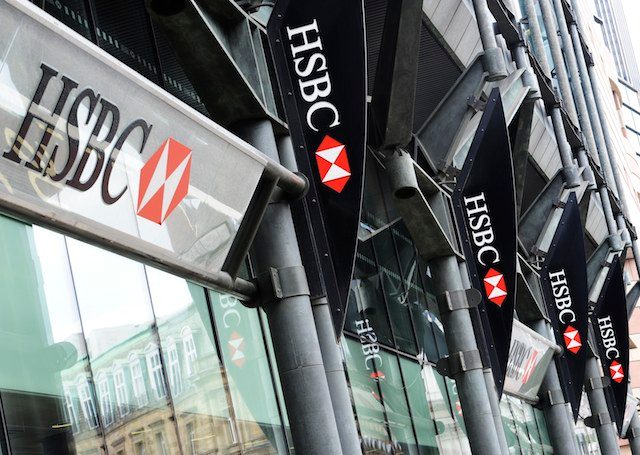SUMMARY
This is AI generated summarization, which may have errors. For context, always refer to the full article.

GENEVA, Switzerland (UPDATED) – Secret documents published online alleging banking giant HSBC helped wealthy customers dodge millions of dollars in taxes caused global shockwaves Monday, February 9, and spotlighted the financial dealings of the world’s ultra-rich.
The cache of files made public in the so-called SwissLeaks case included the names of celebrities, alleged arms dealers and politicians – though inclusion on the list does not necessarily imply wrongdoing.
The documents, published at the weekend, claim the London-based bank’s Swiss division helped clients in more than 200 countries evade taxes on accounts containing $119 billion (104 billion euros).
British lawmakers announced they were launching an inquiry into HSBC’s activities.
“Today’s shocking revelations about HSBC further expose a secretive global industry serving a wealthy elite,” Margaret Hodge, chair of the parliamentary Public Accounts Committee, told the BBC.
“The Public Accounts Committee will be launching an urgent inquiry to which we will require HSBC to give evidence – and we will order them if necessary.”
The huge cache of files from Europe’s biggest bank was stolen by an IT worker in 2007 and passed to French authorities, but had not been previously made public.
The International Consortium of Investigative Journalists (ICIJ) obtained the files via French newspaper Le Monde and shared them with more than 45 other media organizations worldwide.
The documents show that HSBC opened Swiss accounts for international criminals, businessmen, politicians and celebrities, according to the ICIJ.
The revelations renewed calls for a crackdown on sophisticated tax avoidance by the wealthy and multinational companies. Tax avoidance is legal, but tax evasion is not.
“HSBC profited from doing business with arms dealers who channelled mortar bombs to child soldiers in Africa, bag men for Third World dictators, traffickers in blood diamonds and other international outlaws,” ICIJ reported.
Famous names
HSBC’s reputation has been tarnished in recent years by a string of high-profile controversies, including oversight failures which meant Mexican drug traffickers could launder money through its accounts.
Shares in the bank were down 1.64% at the close of trading in London.
A range of current and former politicians from Russia, India and various African countries, as well as Saudi, Bahraini, Jordanian and Moroccan royalty, and the late Australian press magnate Kerry Packer were named in the files.
There were calls for a Swiss probe against the bank, which is already facing prosecution in France and Belgium.
Global fallout on Monday included a Belgian judge said to be considering international arrest warrants for directors of HSBC’s Swiss division, while in Britain a political row was triggered, with the main parties blaming each other for not taking action.
So far Switzerland has only launched an investigation against Herve Falciani, the HSBC employee-turned-whistleblower who stole the files.
In an interview on Monday, Falciani called for more protection for whistleblowers.
“I hope they will have enough energy left after investigating me for the past six years to investigate the bank,” he told Swiss public broadcaster RTS.
The files were used by the French government to track down tax evaders and shared with other states in 2010, leading to a series of prosecutions.
British tax authorities said Monday they had brought in more than £135 million (181 million euros, $206 million) on the basis of the files.
HSBC’s Swiss banking arm insisted it has since undergone a “radical transformation”.
Franco Morra, the head of HSBC’s Swiss unit, said the bank had closed the accounts of clients “who did not meet our high standards”.
HSBC now has “strong compliance controls in place,” he told Agence France-Presse in an email, adding that the revelations are “a reminder that the old business model of Swiss private banking is no longer acceptable.”
Hidden money?
Notes in the leaked files indicate HSBC workers were aware of clients’ intentions to keep money hidden from national authorities.
Of one Danish account holder, an employee wrote: “All contacts through one of her 3 daughters living in London. Account holder living in Denmark, ie critical as it is a criminal act having an account abroad non declared.”
The files provide details on over 100,000 HSBC clients, including people targeted by US sanctions, such as Turkish businessman Selim Alguadis and Gennady Timchenko, an associate of Russian President Vladimir Putin.
Alguadis told the ICIJ it was prudent to keep savings offshore, while a spokesman for Timchenko said he was fully compliant with tax matters.
Other individuals named on the list include Rami Makhlouf, cousin of Syrian President Bashar al-Assad, designer Diane von Furstenberg, who told the ICIJ the accounts were inherited from her parents, and model Elle Macpherson, whose lawyers told the ICIJ she was fully in compliance with UK tax law.
Motorcycle racer Valentino Rossi, listed as having $23.9 million in two accounts, said he had regularized his tax situation with Italian authorities. – With Roland Jackson in London, United Kingdom, Agence France-Presse/Rappler.com
Add a comment
How does this make you feel?
There are no comments yet. Add your comment to start the conversation.